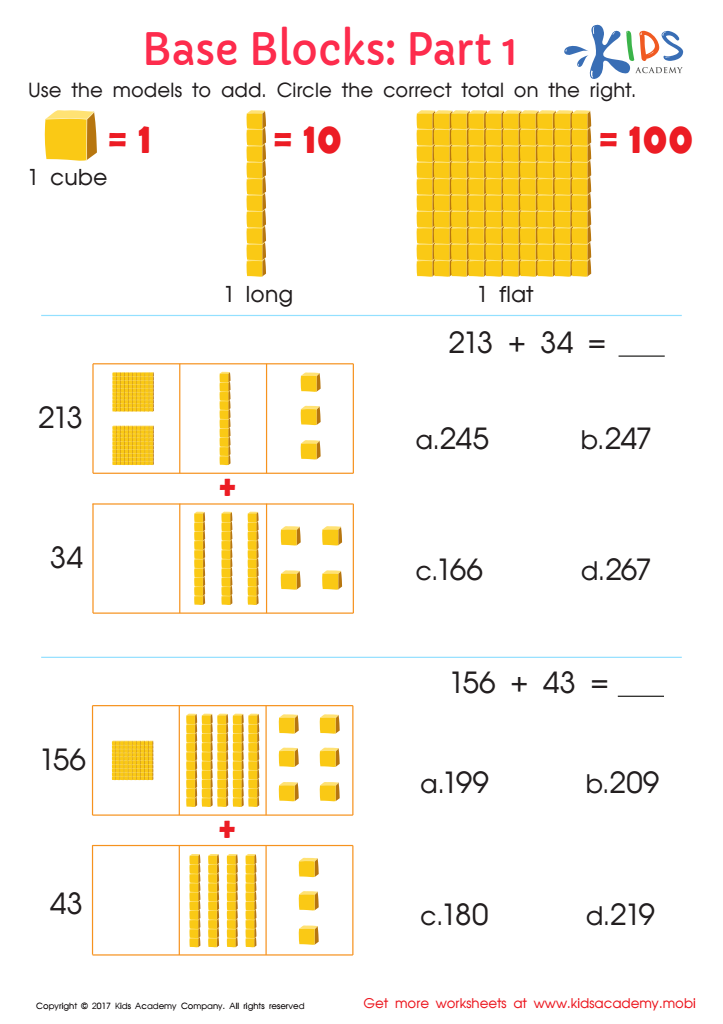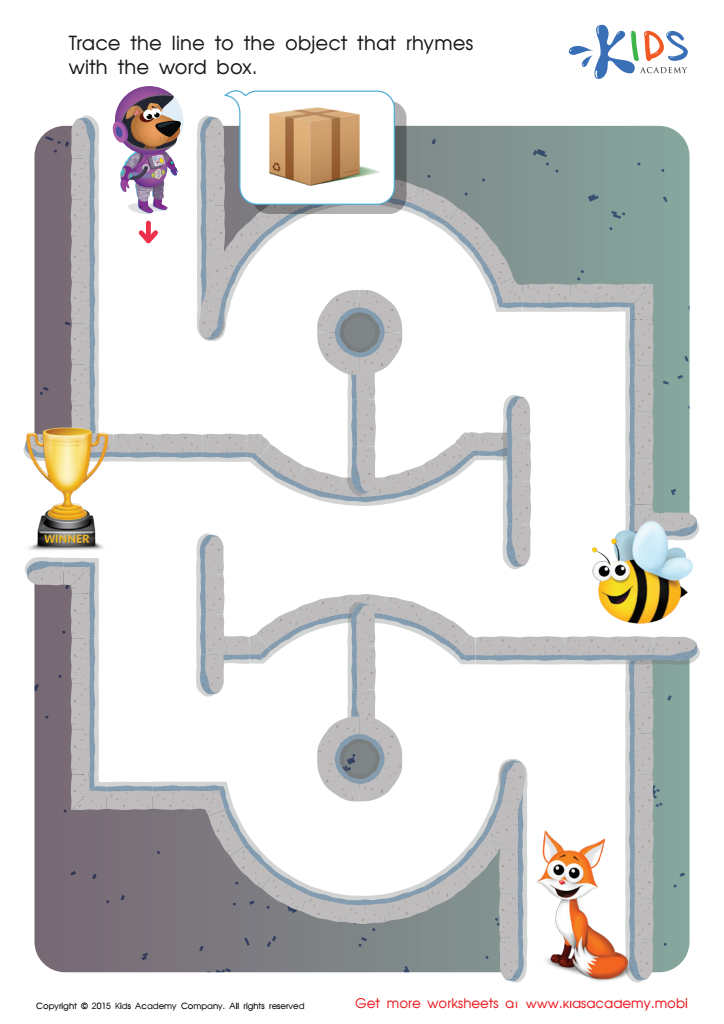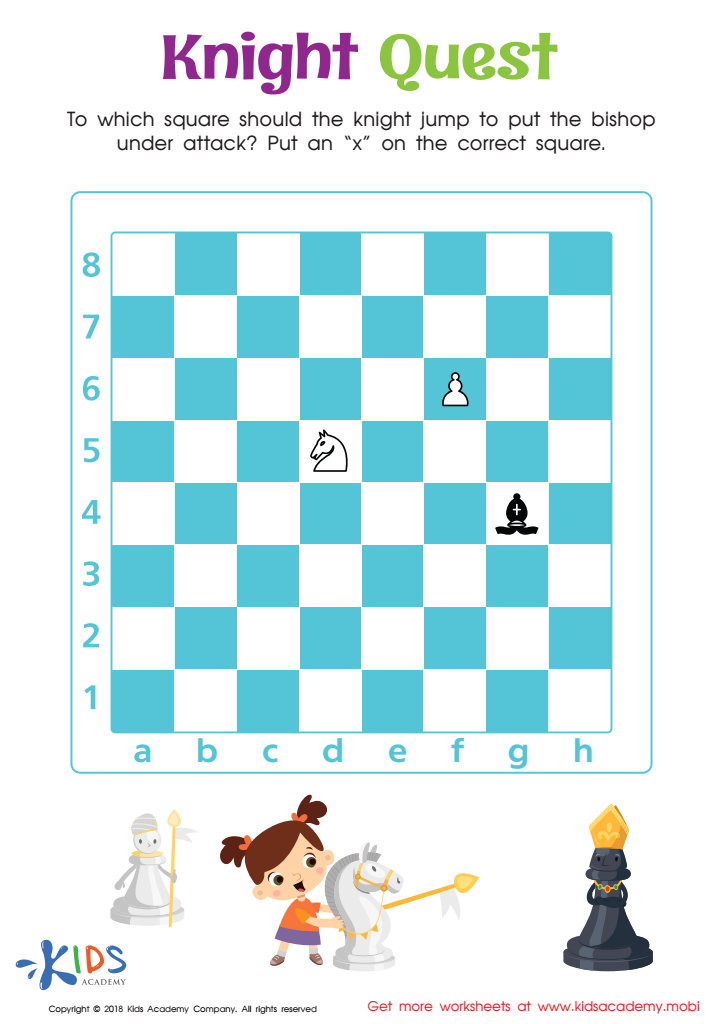Enhances counting skills Normal Worksheets for Ages 3-8
3 filtered results
-
From - To
Enhance your child's counting skills with our specially designed Normal Worksheets for Ages 3-8. At Kids Academy, we understand the importance of a strong mathematical foundation. Our colorful and engaging worksheets make learning numbers both fun and effective. These activities cater to different skill levels, featuring exercises on number recognition, simple arithmetic, and counting objects. Perfect for early learners, our worksheets help develop confidence and proficiency in mathematics. Download now and watch your child thrive as they explore and master basic counting with ease! Trust Kids Academy to support your child's educational journey.


Base Ten Blocks Worksheet: Part 1


Box Rhyming Words Worksheet


Knight Quest Worksheet
Enhancing counting skills in children aged 3-8 is crucial because these formative years lay the foundation for future academic success and everyday functionality. Counting underpins basic math concepts, which are fundamental to more complex mathematical reasoning encountered in later grades. Early proficiency in counting helps children develop number sense, which includes understanding number order, the value of numbers, and basic arithmetic operations like addition and subtraction.
Moreover, counting skills bolster cognitive development by improving memory, attention, and logical thinking. Children learn to recognize patterns, compare quantities, and understand concepts like 'more' or 'less,' which are essential for problem-solving in both academic and real-world contexts.
Socially, children who can count experience increased confidence and independence. When children participate in activities involving counting, such as games or practical tasks (e.g., setting the table), they feel accomplished and are more likely to engage in collaborative tasks with peers.
For parents and teachers, emphasizing counting skills early means cultivating a positive attitude towards math and learning overall. Math anxiety can be avoided by fostering a strong, confident foundation from a young age. Therefore, investing time and resources in enhancing counting skills for children at this stage is an investment in their comprehensive educational journey and life skills.
 Assign to My Students
Assign to My Students





.jpg)


.jpg)











